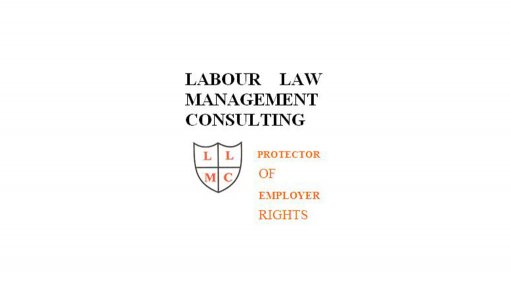
Employers fairly frequently demote employees. This could be for any of many legitimate and illegitimate reasons including:
- The boss dislikes the employee
- The employee has broken a rule
- The employee’s work performance is unsatisfactory
- The boss wants to create a vacancy for somebody else
- Things have gone wrong and the boss needs a scapegoat
- The employer cannot afford to pay the employee’s salary
- The employee is no longer able to carry out his/her job due to illness or injury
Regardless of the reason for the demotion the employer is advised to hold a hearing before implementing a demotion for reasons of poor performance or misconduct. While the Labour Relations Act (LRA) does not specifically require a hearing in such cases it is important to hold a hearing because:
The spirit of the LRA requires that it is unfair to punish an employee without giving him/her a chance to defend the case
Failure to hold the hearing will make it difficult to prove, on record, that the employee was guilty and that the reason for the demotion was fair.
What constitutes a demotion is not always straightforward. In different circumstances alleged demotions can occur in numerous ways including:
- The employer gives the employee a letter stating that he/she has been demoted
- The employee’s pay and/or responsibilities are reduced
- The employee’s subordinates are taken away
- The employee is required to report to someone who used to report to him/her.
- An employee acting temporarily in one position gets transferred back to his/her old position
Regardless of the circumstances employers are advised to take the law into account before doing anything that could potentially resemble demotion. This is because, should the CCMA or bargaining council find the demotion to be unfair the arbitrator has the right to:
- Reinstate the employee into the position from which he/she was demoted
- Award the employee compensation
- Apply any other corrective measure that he/she deems to be appropriate
For example, in the case of Mavimbela vs Sterikleen (Pty) Ltd (2006, 11 BALR 1128) the employee had been a cleaner. He was later asked to carry out supervisory duties but, after failing to carry out these duties properly, he was relegated to being a cleaner. He therefore lodged a dispute at the CCMA for unfair demotion. At the arbitration he alleged that he had been promoted to the position of site manager and then later demoted. The employer said that the employee had never been promoted but rather had been asked to carry out limited supervisory duties in return for receiving an allowance. The removal of the allowance and of the supervisory duties as a result of poor performance was not unfair.
However, the arbitrator found that the employer had failed to prove that the employee had in fact performed poorly. He found therefore that the employer had acted unfairly and ordered the employer to pay the employee compensation equal to eight months’ of the extra managerial ‘bonus” granted when he was given the managerial duties.
In Plaatjies vs RK Agencies (2005, 1 BALR 77) the employer offered the employee an alternative post at a lower salary due to the fact that the employer had lost a major contract. While the arbitrator accepted this as a valid reason the demotion was still unfair because the employer had failed to consult with the employee before making the offer. This CCMA decision is a frightening one because the offer of a reduced position made by the employer would, in my mind, itself constitute part of a consultation process rather than a demotion. That is, the employer was not accused of implementing the demotion but merely of offering the employee a reduced position. In my view, the employer’s action should not have been judged for its fairness until such time as the employee’s position was actually reduced.
In Sass vs African Life Assurance (2005, 6 BALR 682) the employer demoted the employee for failing to make sufficient sales. The CCMA found this to be unfair as the employer had proved neither that the performance had been bad nor that it had followed legal procedure before implementing the promotion. The employer was ordered to reinstate the employee in the higher position.
In view of the above case decisions employers should never implement demotion before obtaining expert labour law advice as to:
- Whether the demotion is merited
- The procedure to be followed in implementing a fair demotion
Written by lvan lsraelstam, Chief Executive of Labour Law Management Consulting. He may be contacted on 0828522973 or on e-mail address: labourlaw@absamail.co.za.